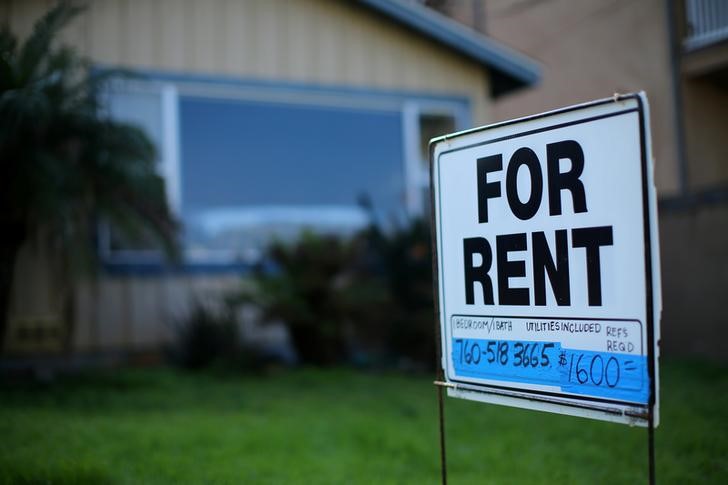By Gail MarksJarvis
CHICAGO (Reuters) - (The opinions expressed here are those of the author, a columnist for Reuters.)
People trying to escape soaring rents in U.S. cities face a cruel reality: home prices are going up, too.
Still, many potential homeowners are finding that as expensive as it is to buy a house, now may be the last opportunity before mortgage rates start to rise.
Buying a home is more affordable than renting in only nine of 39 major metropolitan areas, according to research firm ATTOM Data Solutions: Dallas, Miami, San Antonio, Detroit, Philadelphia, Tampa-St. Petersburg, Cleveland, Pittsburgh and St. Louis.
Good luck affording either in the other markets.
This is why Amanda Wright, 35, and her husband Todd, 33, recently decided to buy in Seattle, where home prices rose more than 14 percent last year.
“It’s a really challenging time for a buyer,” said Wright, a real estate broker. The financial planning rule of thumb is to spend no more than 30 percent of a family’s monthly income on housing, but “it is nearly impossible to follow that guideline now in Seattle.”
Residents in Seattle, on average, are spending 40.2 percent of pay for a three-bedroom rental, according to ATTOM Data Solutions research based on U.S. Bureau of Labor Statistics and Department of Housing and Urban Development data. Buying the median priced Seattle area home at $613,500 demands 62.5 percent of pay.
In Brooklyn, people on average would spend 67.4 percent of their pay on rent, but buying the median priced home at $640,000 would require 110.9 percent of pay. In the San Francisco area, which has the highest income-to-housing cost ratios in the country, rent takes 79 percent of pay, and 136 percent of pay to buy the median home at $1.17 million.
At those prices, “renting is the lesser of two housing evils,” said Daren Blomquist, senior vice president of ATTOM Data Solutions.
The good and bad news down the road involves mortgage interest rates. If they climb as expected to near 5 percent this year, home payments will cost more.
Although that will price some people out of the housing market, it could also cause prices to decline as demand drops, said Blomquist. Early cracks in the housing market seemed to show up in January, when existing home sales fell 3.2 percent.
“Affordability is getting worse and something’s got to give,” said Blomquist. “Mortgage rates put more pressure on the affordable pressure cooker.”
Last week the average 30-year mortgage rate was 4.4 percent, according to mortgage finance agency Freddie Mac, compared to 3.9 percent late in 2017. On a $380,000 home, that lifts monthly payments by about $100.
Based on rates alone, a jump from 4 percent to 5 percent could cause the nation’s home sales volume to drop by 300,000, said National Association of Realtors economist Lawrence Yun. Last year about 6.1 million new and existing homes were sold. But, he said, a strong economy and job growth could mitigate a decline.
Among those motivated to move now, before things get more expensive, is Ray Jess, 32. He was hesitant to stretch past that 30 percent ratio of income to housing cost after watching his parents generation struggle financially, but buying something won out. His starter home, which he purchased with his wife in Chicago last week, will be the first floor of a duplex.

“My wife and I were concerned that the longer we waited, the house we could buy would become less and less nice,” Jess said.